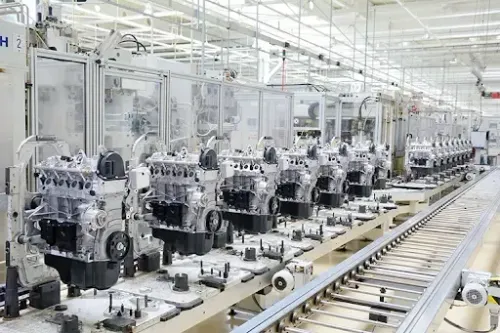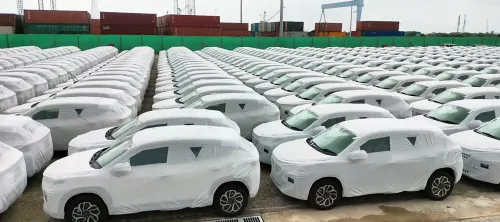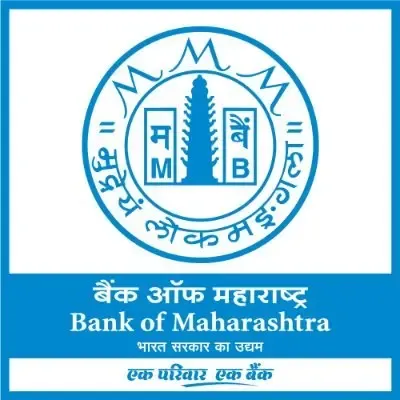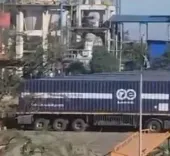How is Hindustan Zinc Transforming Logistics with GreenLine Mobility?
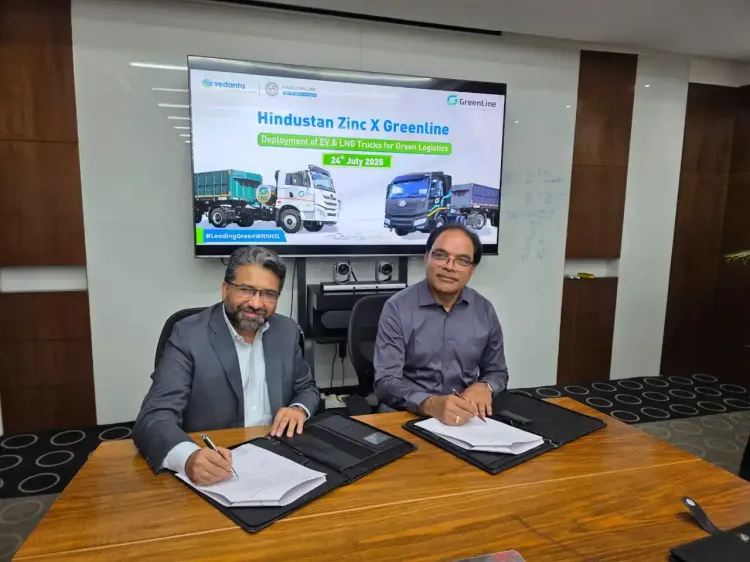
Synopsis
Key Takeaways
- Hindustan Zinc partners with GreenLine Mobility for green logistics.
- Investment of Rs 400 crore for 100 Electric Trucks.
- Establishment of battery swapping infrastructure for EVs.
- Reduction of 236 metric tonnes of CO2 emissions per month.
- Ambitious targets for Sustainable Development Goals by 2030.
Mumbai/Udaipur, Aug 4 (NationPress) – Hindustan Zinc Limited, recognized as the largest integrated zinc producer globally and the only one in India, has initiated a significant transition towards green logistics in collaboration with GreenLine Mobility Solutions Ltd, an Essar initiative and a prominent player in the green logistics sector.
This partnership represents a crucial milestone in Hindustan Zinc's ambitious journey to achieve 100% decarbonization of its supply chain through the integration of advanced electric (EV) and Liquefied Natural Gas (LNG) trucks.
The expansion signifies a substantial advance in Hindustan Zinc's commitment to reaching Net Zero emissions, facilitated by the extensive deployment of EVs and LNG trucks throughout its logistics framework.
As part of this strategic alliance, GreenLine is set to invest Rs 400 crore to introduce 100 Electric Trucks, replacing diesel-powered vehicles for the transportation of concentrates between the company's mining sites and smelters. Additionally, they will establish India's inaugural commercial-scale battery swapping infrastructure with three high-capacity stations for continuous operations, while also enhancing Hindustan Zinc’s LNG fleet by incorporating 100 new LNG trucks, effectively doubling the fleet size to 200 for long-distance finished goods transport.
Arun Misra, CEO of Hindustan Zinc Limited, remarked, “At Hindustan Zinc, our commitment to pioneering sustainable practices remains steadfast. We believe that the future of manufacturing is green. The extensive deployment of EVs and LNG trucks is a bold stride in our quest for net-zero emissions, underscoring our dedication to creating a meaningful impact through innovative green logistics solutions and strategic partnerships, thereby cultivating a cleaner and more sustainable supply chain.”
This initiative is anticipated to yield cost savings through reduced freight rates and is projected to decrease around 236 metric tonnes of carbon dioxide emissions monthly, which is akin to planting approximately 12,000 trees. Collectively, this program aims to cut down around 150,000 tonnes of Scope 3 emissions each year, further propelling Hindustan Zinc’s goal of achieving net-zero emissions by 2050 or sooner, while supporting India’s green growth aspirations.
Anand Mimani, CEO of GreenLine, stated, “Clean transportation is not an option for the future; it is our responsibility today. This collaboration with Hindustan Zinc powerfully demonstrates our mutual urgency to decarbonize logistics on a large scale, establishing a scalable model for industrial decarbonization across various sectors. With our LNG and EV fleet, manufactured by Blue Energy Motors, we are merging innovation, sustainability, and real-world impact in an effective and powerful manner for the industry.”
Hindustan Zinc has been recognized as the world’s most sustainable company in the metals and mining sector by the S&P Global Corporate Sustainability Assessment 2024. The company has recently unveiled its ambitious 2030 Sustainable Development Goals (SDG), which encompass targets across various critical areas, including climate change, water stewardship, biodiversity conservation, responsible sourcing, circular economy, workforce diversity, and social impact. The organization has pledged to achieve a 50% reduction in Scope 1 and 2 emissions and a 25% reduction in Scope 3 emissions from the baseline of 2020.
Currently, GreenLine operates over 650 LNG trucks, catering to clients from sectors such as FMCG, e-commerce, metals and mining, cement, oil and gas, and chemicals. Its fleet has traversed over 50 million kilometers, resulting in a reduction of over 14,000 tonnes of carbon dioxide emissions. The company aims to expand its operations to over 10,000 clean trucks, bolstered by a nationwide network of 100 LNG refueling stations, EV charging hubs, and battery swapping facilities, creating an integrated green mobility ecosystem poised to cut carbon emissions by up to 1 million tonnes annually.


